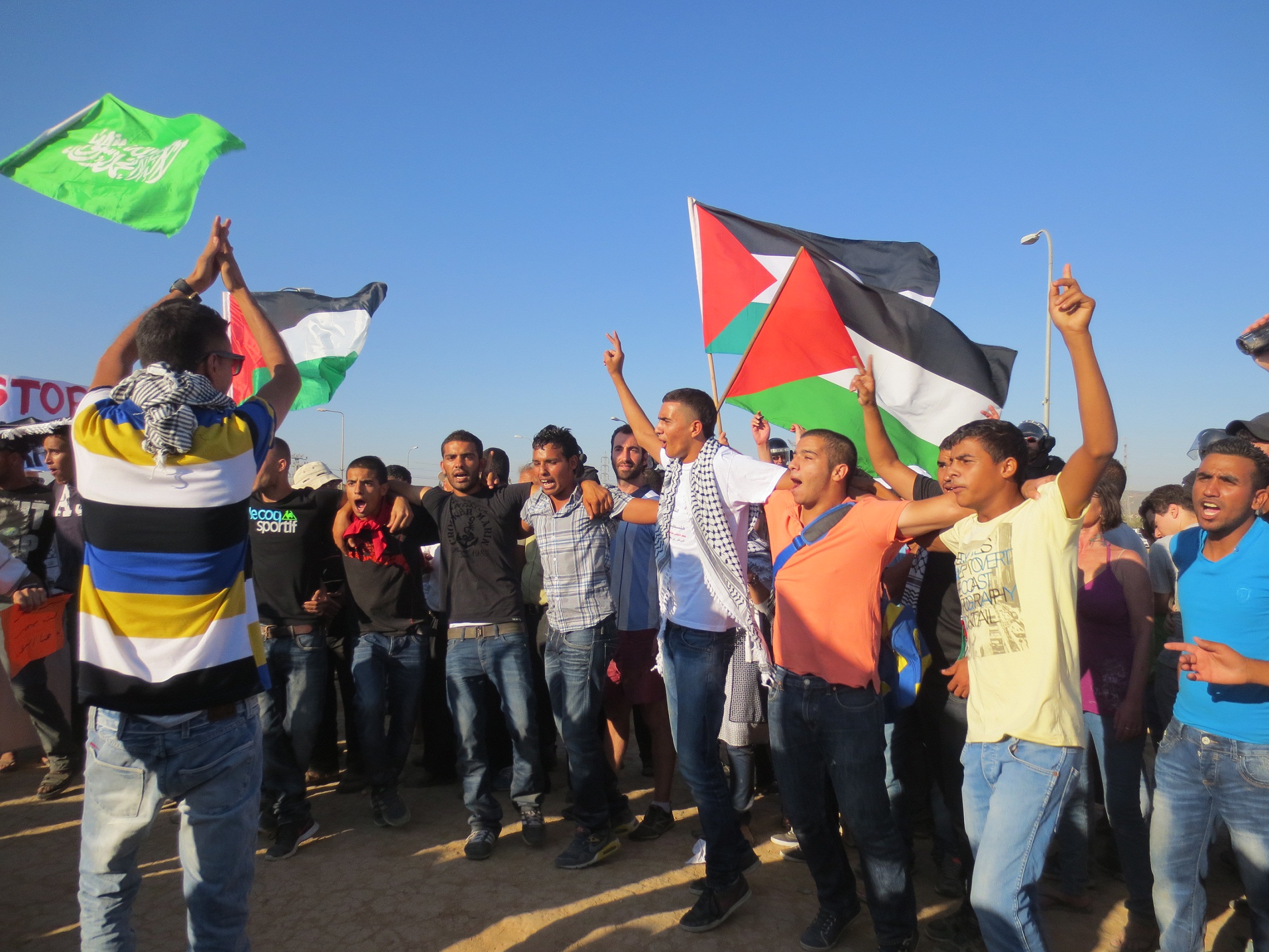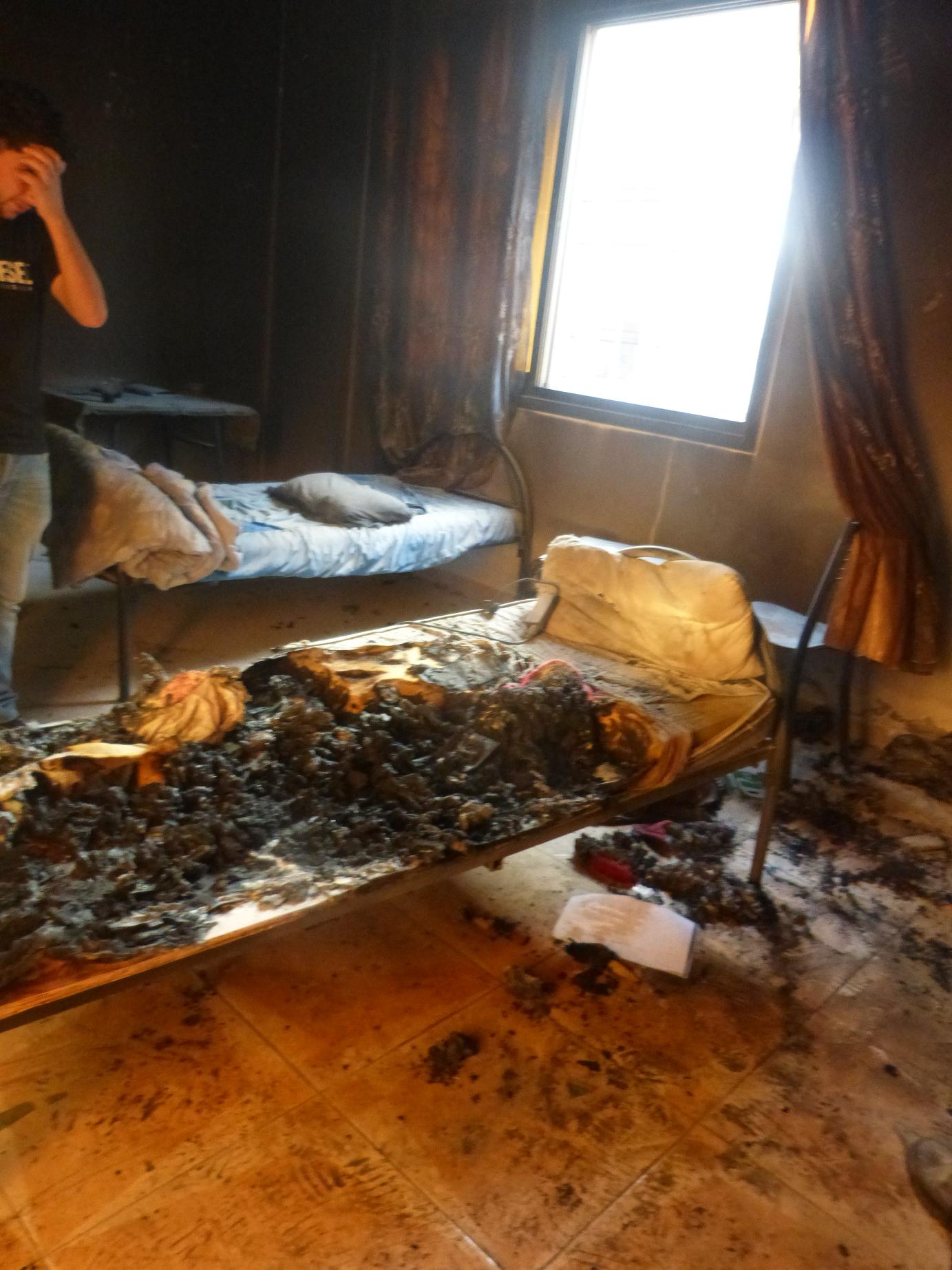Tag: Arrests
-
Updated: ‘Day of rage’ against Prawer Plan met with violent repression and over ten arrests
2nd August 2013 | International Solidarity Movement, Ramallah Team | Palestine Update 2nd August: The Palestinian activist arrested at the protest near Hizma checkpoint has been released after paying 3000NIS. All arrestees at the demonstration in Wadi Ara have also been released but will have to be under house arrest for three days. ******* On…
-
Student apartments burnt during Israeli military invasion of Nablus
12th July 2013 | International Solidarity Movement, Nablus Team | Nablus, Occupied Palestine In the early hours of Wednesday the 10th of July, the Israeli army, arriving from the military camp near the settlement of Qedumim (8km west of Nablus) raided the Nablus neighbourhood of Al Junied, near the new Al Najjar university campus. The…
-
Video – Father and 5-year-old son illegally detained in occupied Hebron
9th July 2013 | International Solidarity Movement, Khalil Team | Hebron, Occupied Palestine On July 9th at around 4pm in occupied Hebron, Israeli soldiers arrested and held a five-year-old boy in their military base along with his father. They kept the father handcuffed and blindfolded, and transferred them to the checkpoint separating the Israeli and…


